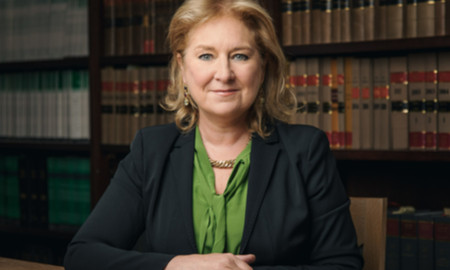Sign up for our free daily newsletter
YOUR PRIVACY - PLEASE READ CAREFULLY DATA PROTECTION STATEMENT
Below we explain how we will communicate with you. We set out how we use your data in our Privacy Policy.
Global City Media, and its associated brands will use the lawful basis of legitimate interests to use
the
contact details you have supplied to contact you regarding our publications, events, training,
reader
research, and other relevant information. We will always give you the option to opt out of our
marketing.
By clicking submit, you confirm that you understand and accept the Terms & Conditions and Privacy Policy
The Lady Chief Justice, Dame Sue Carr, has mooted the establishment of a London committee that brings together representatives from the courts, arbitral centres and mediation providers to promote cross-fertilisation and best practice.
Delivering the morning keynote at London International Disputes Week’s (LIDW’s) core conference today (4 June), Carr underlined the need for London to “combine different forms of dispute resolution more effectively” if it is to maintain its world-leading position as a disputes centre.
Carr cited the example of the London Commercial Court Users Group, which she said had “helped ensure the Commercial Court is a globally leading dispute resolution centre”.
She added: “Might we learn from this approach? Could one way in which London looks to continue to develop better practice, to offer itself as a world-leading centre for dispute resolution, be for the three main forms of dispute resolution – mediation, arbitration and litigation – to come together and consider how they can best complement each other and learn from each other?
“A London Dispute Resolution Committee, perhaps… If we unite in this way, are we not likely to be better placed to thrive in the face of global challenges and to take advantage of future opportunities?"
Carr told delegates at the Queen Elizabeth II Centre that London had a “wealth of expertise” in what she identified as “the perfect triumvirate” of dispute resolution.
She said it was “world leading” in the field of mediation and highlighted its “longstanding expertise” as a top arbitration centre, aided by the Arbitration Act 1996, which she described as “a landmark piece of legislation which helped to propel London to its position as the foremost destination for international arbitration today”.
Carr said “cross-fertilisation” between the three forms of dispute resolution would “inevitably become more important” following last November’s landmark Court of Appeal decision in Churchill v Merthyr Tydfil County Borough Council, which confirmed the power of the courts to mandate the use of ADR by parties to litigation.
“Judges are increasingly likely to be called upon – further to the requirement to manage cases to further the CPR’s overriding objective – to consider whether to mandate the use of ADR. And not just to consider the question of whether to do so, but also the broader question of which form of dispute resolution to mandate.”
She suggested a document similar to the US Federal Guide to Judicial Management of ADR may be necessary, given the many forms of ADR on offer, and asked “whether we need to consider judicial training, as well as broader training in the legal profession, to familiarise use all with the manifold varieties of dispute resolution process”.
With more than 6,000 registrations and participation from nearly 100 different jurisdictions, LIDW24 has recorded double the international delegate representation compared to last year, while delegates from nearly 60 countries will attend the conference.
The conference, which ends on 7 June, also features a keynote addresses from Meg Kinnear, the outgoing secretary-general of the International Centre for Settlement of Investment Disputes (ICSID).
The Global Legal Post is a media sponsor for LIDW.
Email your news and story ideas to: [email protected]











